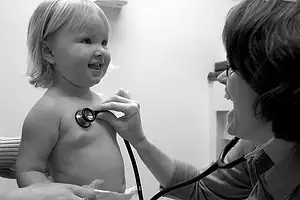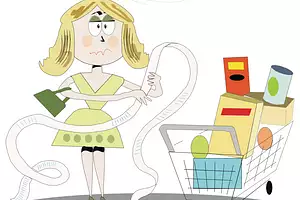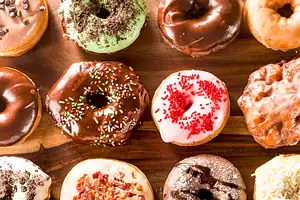If your doctor has diagnosed you with high blood pressure, pay attention! According to the Mayo Clinic, your blood pressure is too high if the top number is more than 140 and the bottom number is higher than 90.
The way you live your life each day can have a huge impact on your blood pressure. By making simple lifestyle changes, you might be able to avoid taking medication and move your blood pressure levels into healthy territory.
1. Relax your body and mind.
Stress is a proven cause of high blood pressure. While you may not be able to cut stressful situations or people out of your life, you can stop its negative effects on your body. Doctors often recommend practicing relaxation techniques to reduce stress, but which one is most effective?
The positive effects of transcendental meditation on blood pressure have been observed in more than 500 studies. Transcendental meditation creates balance between mind and body and signals the body to heal itself. To practice transcendental meditation, sit comfortably with your eyes closed and repeat a phrase, or mantra, to yourself. Aim for two, 20-minute periods of meditation each day.
2. Watch out for caffeine.
Drinking caffeinated beverages can cause your blood pressure to spike, if you are sensitive to caffeine. For people with normal blood pressure, this isn’t a problem. However, if you already have high blood pressure, you could be putting yourself at risk.
To find out if you are sensitive to caffeine, take your blood pressure and then drink your caffeinated beverage of choice. After 30 minutes, take your blood pressure again and compare the levels. If your blood pressure level after drinking caffeine has risen by more than 5 points, think about limiting the amount of caffeine you drink each day. Aim for 200 milligrams per day, which equals about three 8-ounce cups of coffee.
Be careful not to compound the effects of caffeine on your blood pressure by drinking a caffeinated beverage just before doing an activity that could raise your blood pressure, such as running or lifting heavy items.
3. Drink moderately.
Drinking more than the recommended amount of alcohol could be driving up your blood pressure levels. Doctors recommend limiting yourself to one drink a day if you are a woman or senior citizen or two drinks if you a man younger than 65. Binge drinking is especially dangerous and can cause dangerous spikes in your blood pressure.
A study out of South Korea has found a link between hypertension and alcohol-related facial flushing. Chungnam National University researchers found that those who have facial flushing after drinking could have problems metabolizing alcohol, leading to sudden increases in blood pressure levels.
4. Prepare your own meals.
Studies have shown that eating a well-balanced diet can reduce your blood pressure levels. Eating too many processed foods and too much salt can drive your blood pressure up into the danger zone. Cook your own meals at home, using high-quality ingredients and limiting the amount of salt and fat that goes into your dishes.
5. Get off of the couch.
Being physically active for 30 minutes each day can lower your blood pressure. An analysis of 13 studies examining exercise and high blood pressure from Hypertension found that the more you exercise, the lower your blood pressure will be.
So stop spending time in front of the TV or computer screen and be active! Take the dog for a walk or go for a bike ride with a friend. Find simple ways to increase your activity, like taking the stairs at work, going for a stroll around the office building on your breaks, or parking the car further away from the grocery store.
6. Eat for lower cholesterol.
Salmon and other fatty fish are packed with heart healthy DHA omega-3. Eat three 3.5 ounce portions each week to reduce your blood pressure and protect your arteries from dangerous plaque build-up.
An Israeli study found that women who eat a large, 700-calorie breakfast each day and then smaller meals for the rest of the day, had lower blood pressure and were able to shed more pounds than those who ate a light breakfast.
Fill your plate with fruits and veggies. An analysis reported in JAMA Internal Medicine found that skipping meat and eating plenty of vegetables could lower your blood pressure levels by up to seven points! Plant-based foods are naturally fat-free, low in sodium, and full of potassium, which is known to lower blood pressure levels.










Comments